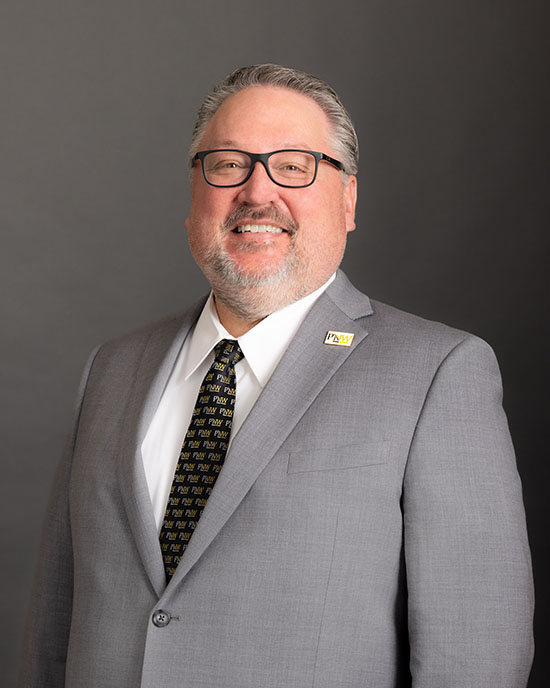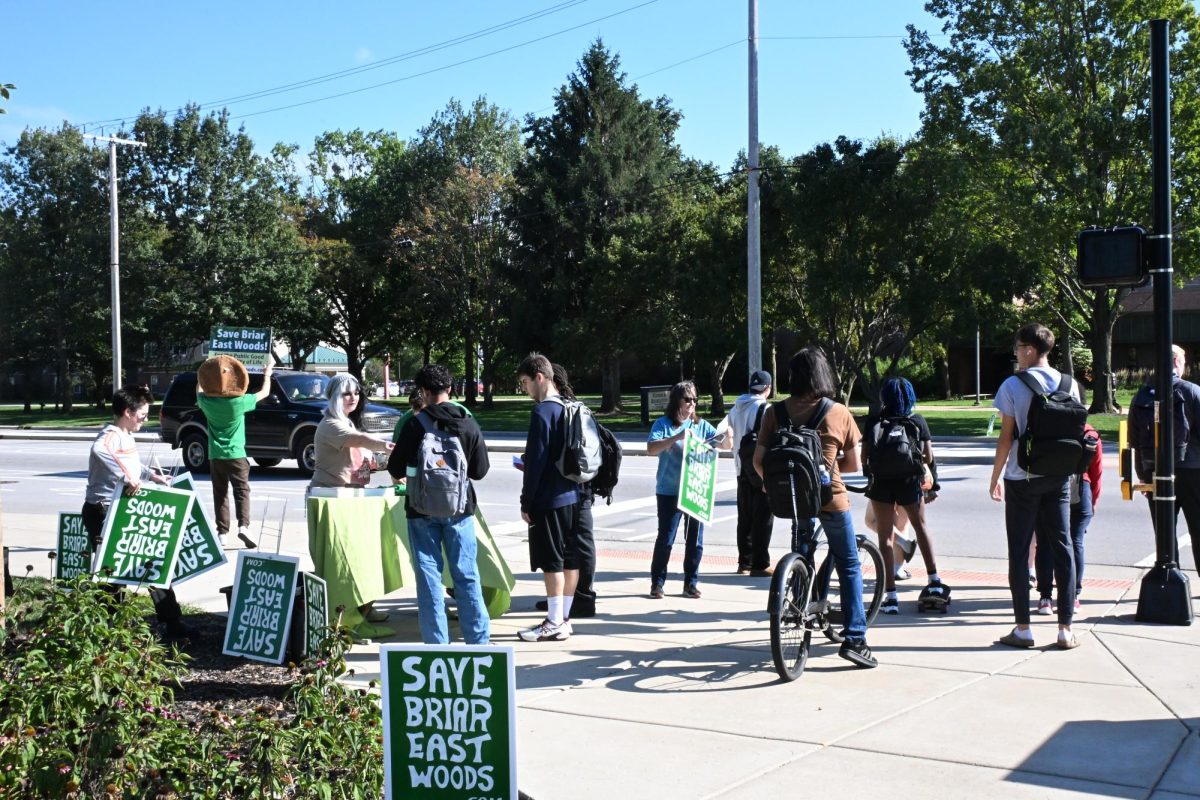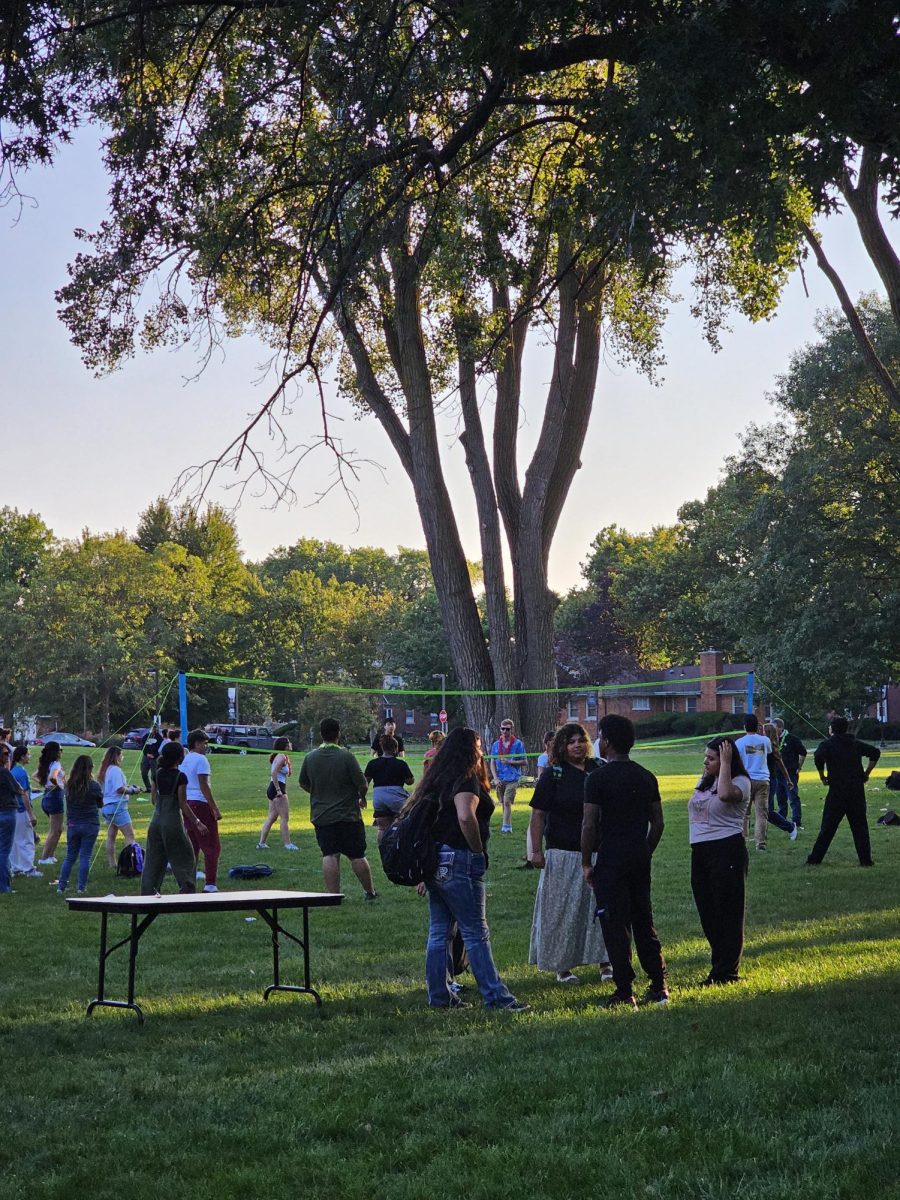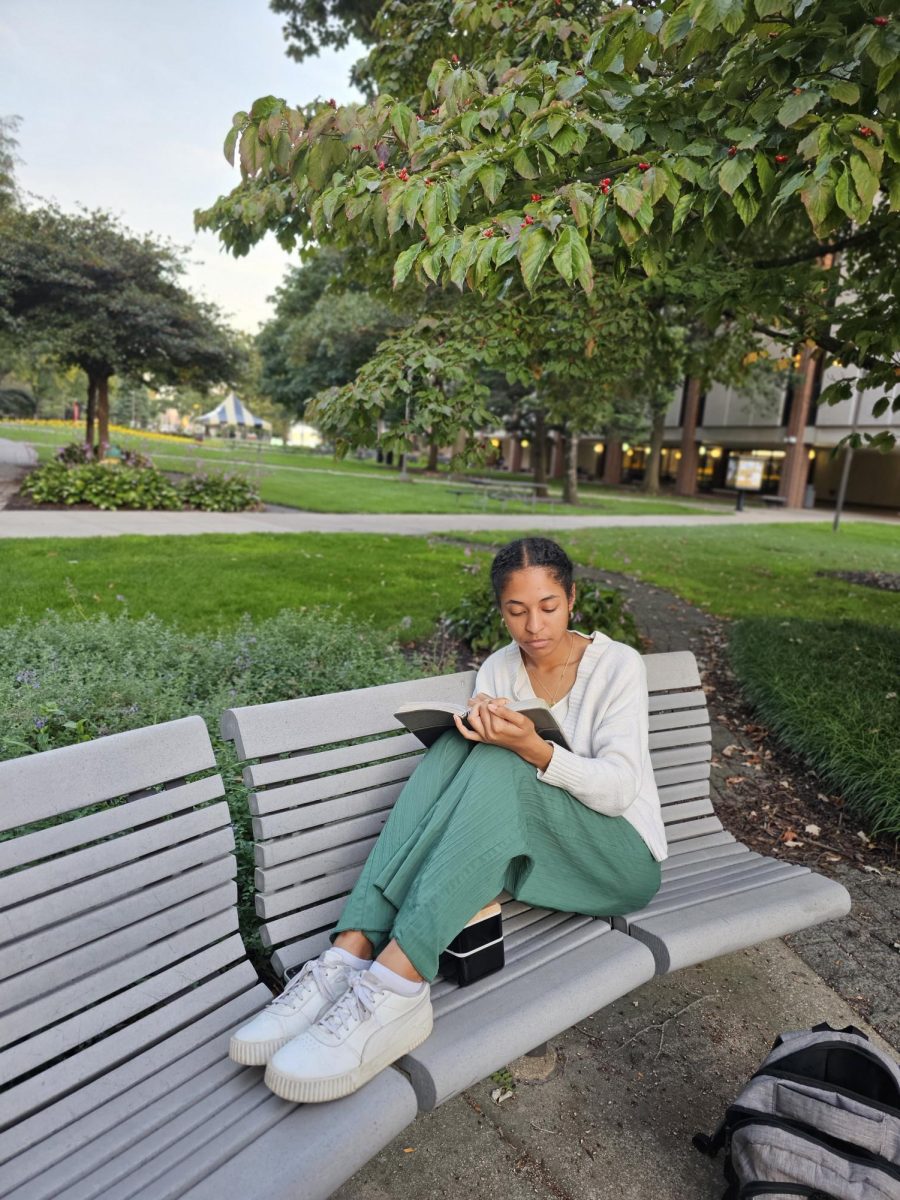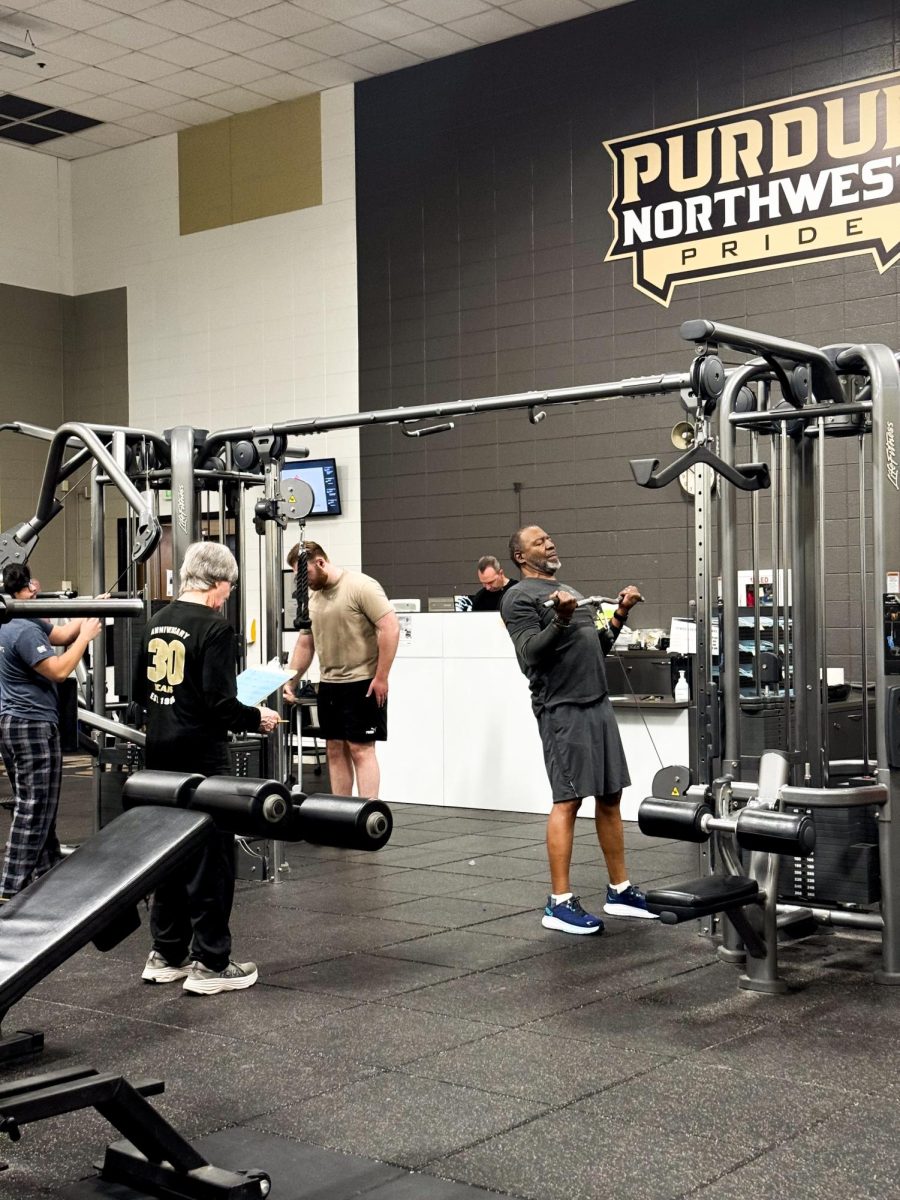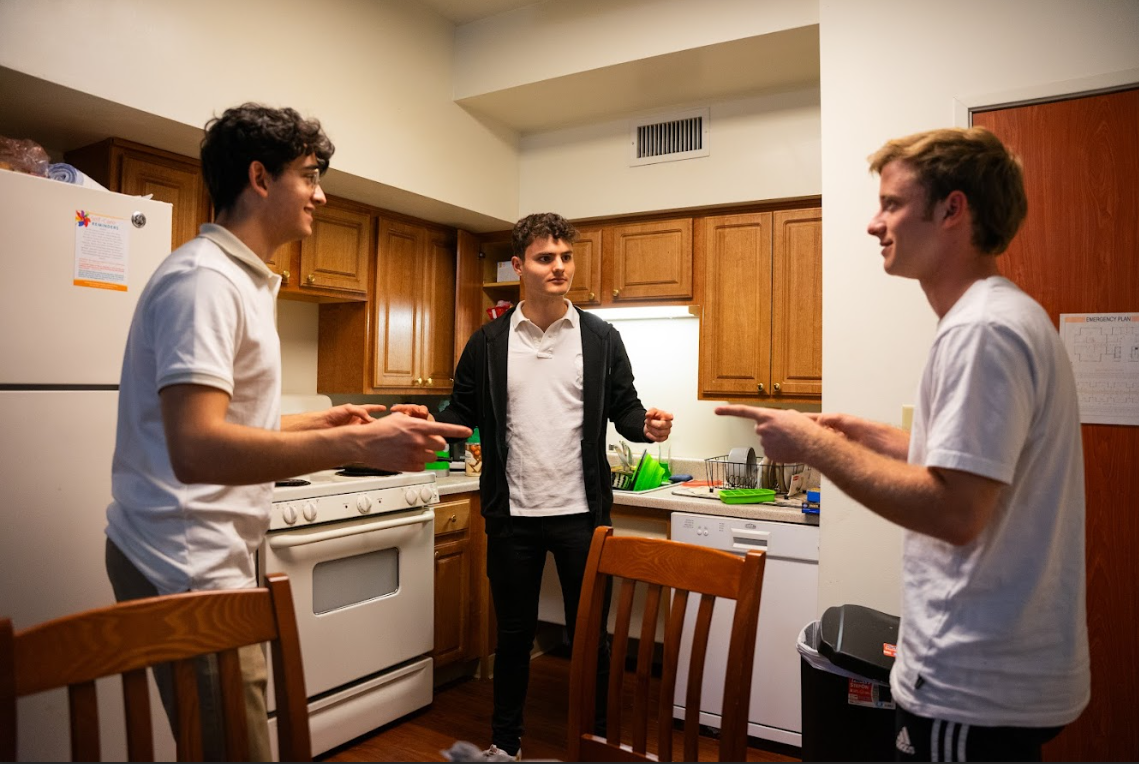Chancellor Kenneth Holford believes the key to PNW’s continued success is making sure every day matters for students, faculty and staff through quality engagement in and out of the classroom.
“I see a future for us with quality programming … being able to attract [students] recognizing that we are an institution of quality, and we are going to prepare you to meet the workforce needs,” he said.
Holford started as chancellor in January but has been part of PNW and its legacy institutions since he was hired as a professor of Biology at Purdue North Central in Westville more than 20 years ago.
He said that students are showing a lot of interest in certain fields such as health care, social work, cyber security, engineering and technology, and computer science, these fields just so happen to align with the growing workforce needs in the Region as well.
“I want us to be the premier provider for workforce development in Northwest Indiana and beyond,” he said. “There is a lot of potential in economic development and movement of industry … and there are going to be a lot of new jobs appearing. Everything from the refinery to the mills to the energy sector are all starting to collaborate more together.”
He said PNW has a role to play in that collaboration.
“We want to make sure the education we offer aligns with what the workforce needs in this area are going to be,” Holford said. “What does the workforce look like in five years or 10 years and what are the skill sets that a graduate is going to need to be the most competitive candidate to get those jobs as they emerge here in Northwest Indiana.”
As the workforce needs of Indiana continue to change and expand, Chancellor Holford will continue to look for opportunities to develop advanced practice degrees at both the master’s and doctoral level.
“As an institution, we’re changing … [and] one of the things we’re seeing is growth in our graduate programs, particularly in areas where that graduate programming aligns with workforce needs in this part of the state,” he said.
Holford said that almost 60% of students at PNW are first-generation college enrollees and the university needs to have systems in place to support them.
This has led PNW to focus more on the guidance advisors offer students, turning transactional advising into a transformational advising process.
“We have moved from the idea that … the advisor …. just helps you register for class, to an advising staff that tries to understand you as an individual, what are you trying to accomplish getting your degree, what are your constraints for success… and then how can we help you merge your desires and needs with your academic experience here on campus,” he said.
Additional training and development have also been added to help advisors understand the new advising model.
“We piloted a different advising model to make certain that every student is able to form a relationship with their advisor,” Holford said.
He also wants to increase student involvement outside of the classroom in campus events and activities.
“Students that are engaged at the campus retain at a higher rate, so those are linked together, and I think you will continue to see that as a theme,” Holford said. “Many clubs and organizations have high-quality spaces exclusively for their needs.
“We will continue to expand clubs and organizations as there is interest [expressed] in the dean’s office and Student Life,” he said. “[Also], we do have an agenda to continue expanding athletics.”
Holford said that PNW needs to do more to highlight the excellence established at the university over the years.
“I’m proud of what we do at the institution,” he said. “I’m proud of what we’ve accomplished, and I want to push us to accomplish even more.”


